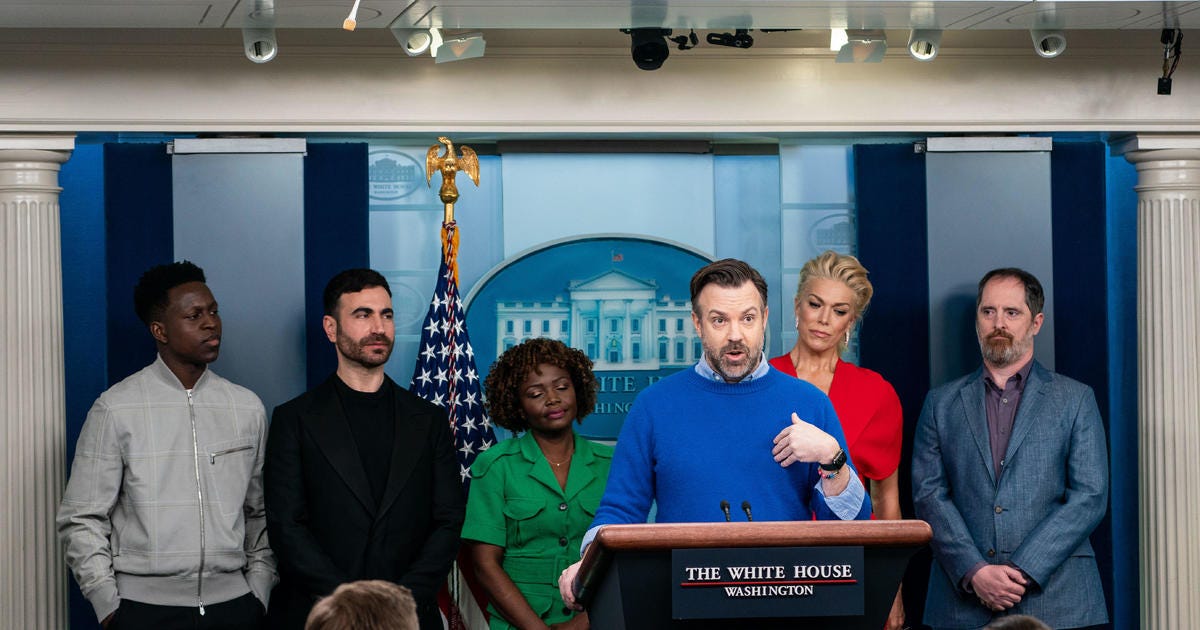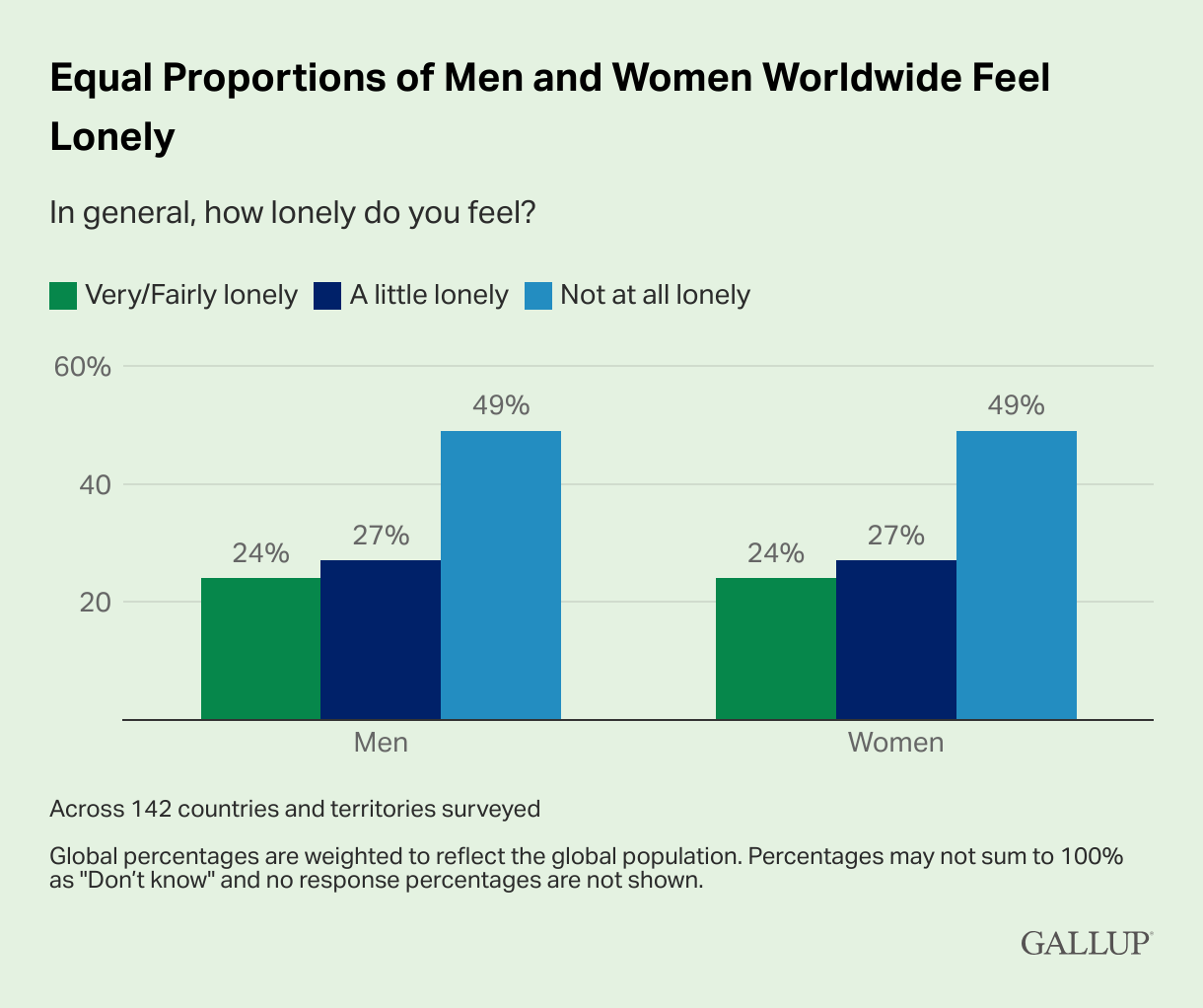A lesson I am still learning is the fact that just because someone makes Discourse out of a non-issue doesn't mean I have to elevate said issue by treating it in kind. It appears that much of media is on that same journey with me, because why do I keep seeing articles on the male loneliness epidemic? At a time like this!!?
Here's one, and I have to warn you that it’s all downhill from here:
"When I was a new stay-at-home dad 15 years ago, I took my children to the mall playground one day. I sat on the floor with my newborn while my toddler played on the germ-infested equipment. I had my arm draped over the end of a bench while I read a book.
Soon, a mom’s group came to the bench, put down their bags and parked their strollers. Then one mom sat on my arm and didn’t notice. Eventually, I politely said “Excuse me” to her, and she looked at me shocked and didn’t offer an apology. Apparently, I was invisible." (CNN)
It's not supposed to be funny, but this felt a little bit like reading the diary of a theater camp’s thirteen-year-old main character. Apparently, I was invisible. Say less, bud: abc family is calling! Even the logistics of the story are confusing to me: was he sitting on the floor when the woman sat on his arm? Was he draping his arm over the bench while sitting on the floor? So he wasn’t actually using the bench for its intended purpose, then? Has he been stewing over this very minor occurrence for 15 years? Did he bring it up at dinner parties for months and then begin to complain about loneliness when the invites dried up? I mean, I'm sorry, but please — if you're going to wait 1.5 decades to talk about something to CNN, make it more interesting than a non-altercation over a mall bench.
(There’s a paywall coming up in a few paragraphs, but a reminder that in honor of the launch of Missed Classics, our new book club, I’m running a 20% off discount on annual subscriptions until Friday the 25th!)
Tragically, that was not the last unintentionally funny article I read on the issue of male loneliness. The consultant class of America has heard about the male loneliness epidemic and boy, are they leaning in. Here’s another little paragraph just teeming with comedy:
The problem for Democrats is that their embrace of women’s issues often ignores the challenges facing men. Under the heading “Who We Serve,” the Democratic Party platform lists various demographic groups, including women, the LGBTQ+ community, African-Americans, and so on. Guess which group doesn’t make the list? Men. If many men feel that their concerns aren’t being taken seriously by Democrats, well, they are not wrong. (Wall Street Journal)
The challenges! Facing! Men! I like the idea that this guy (Richard Reeves, by the way; he’s a Brookings Fellow and President of the American Institute for Boys and Men, which, sure, why not, I don’t have space or time to discuss that right now but trust that my thoughts are developing) saw a list of groups of historically marginalized pockets of the population, panicked, and thought by Jove, where are the men? A demographic famously missing from the LGBTQ+, Black, and — sorry, this is one of the “and so on” groups the Democratic platform serves that didn’t quite help Reeves’ argument — rural American communities.
One barely has to read between those particular lines to understand what the real problem is: white men are inching closer to losing their run of the place, and panic is thus ensuing. (When I say inching, I mean it: from Pew Research Center, here are some germane studies and statistics on wealth variations by race, the stubbornness of the gender wage gap, and female leadership in politics.)
A fantastic sort of concept has taken off: that because marginalized groups are making some societal gains, we should spend significant resources coddling the poor white men who for so long benefited from this unearned and unjust hegemony and are now starting to feel left out — an unfamiliar, unsettling sort of sensation for this demographic, I’m sure.
Luckily, what is an election if not a chance for what unquestionably remains the most powerful group in America to be pandered to?
“Over the last 20 to 30 years, while we have tailored messages for everyone else, we do not have tailored messages for men,” said Rocketto, the White Dudes for Harris co-founder. “We need to try other stuff. We need to create space for people.”
Mike Nellis, a fellow organizer at White Dudes for Harris, said he has personally dealt with mental health struggles and felt there had to be a space on the left for some of these problems to be openly discussed. (NBC News)
Here is an almost staggering lack of awareness — it shouldn’t, but it shocks me. We need to create space for people, he said. He saw the words “safe spaces” for affinity groups around campus a few years ago and thought I want one, not realizing that they only exist because the entire world has been shaped, over millennia, into a safe space for and by white men.
Nellis then complaining that there’s no room for him to discuss his mental health struggles is puzzling, because I swear to God, for whom do you think the Ted Lasso cast went to the White House last year to discuss mental health, dude? I hear more from politicians about how preciously we as a society need to tend to white men’s fragile mental health than I do actual health care policy plans. Be serious.

The curious thing is that when the Surgeon General’s report on loneliness and isolation came out in early 2023, it was not geared specifically to men, much less white men. At all. In fact, it stated:
Although risk may differ across indicators of social disconnection, currently, studies find the highest prevalence for loneliness and isolation among people with poor physical or mental health, disabilities, financial insecurity, those who live alone, single parents, as well as younger and older populations.
[...]
Additional at-risk groups may include individuals from ethnic and racial minority groups, LGBTQ+ individuals, rural residents, victims of domestic violence, and those who experience discrimination or marginalization.
And late last year, when Gallup conducted a poll on the same issue, it was revealed that in this, at least, there was gender parity.
Interesting, no?
Keep reading with a 7-day free trial
Subscribe to Hmm That's Interesting to keep reading this post and get 7 days of free access to the full post archives.




